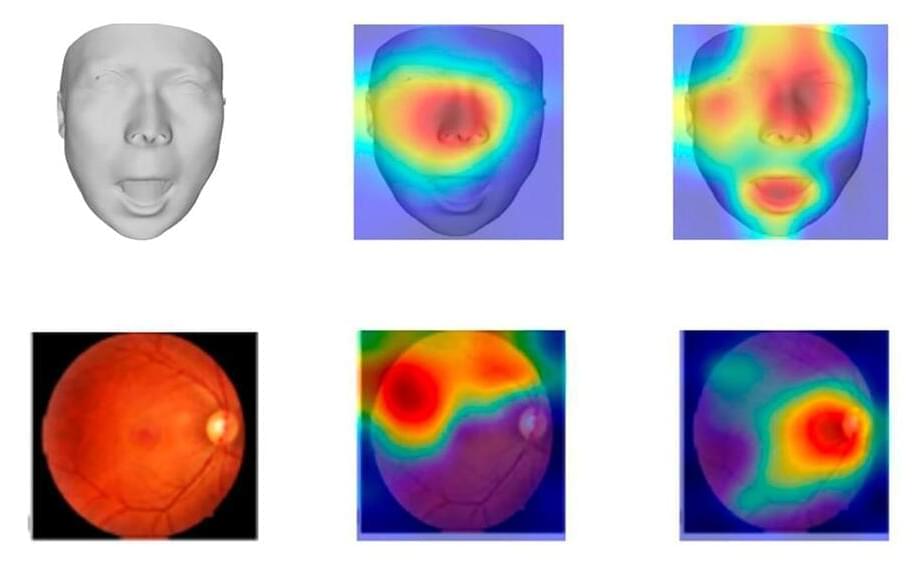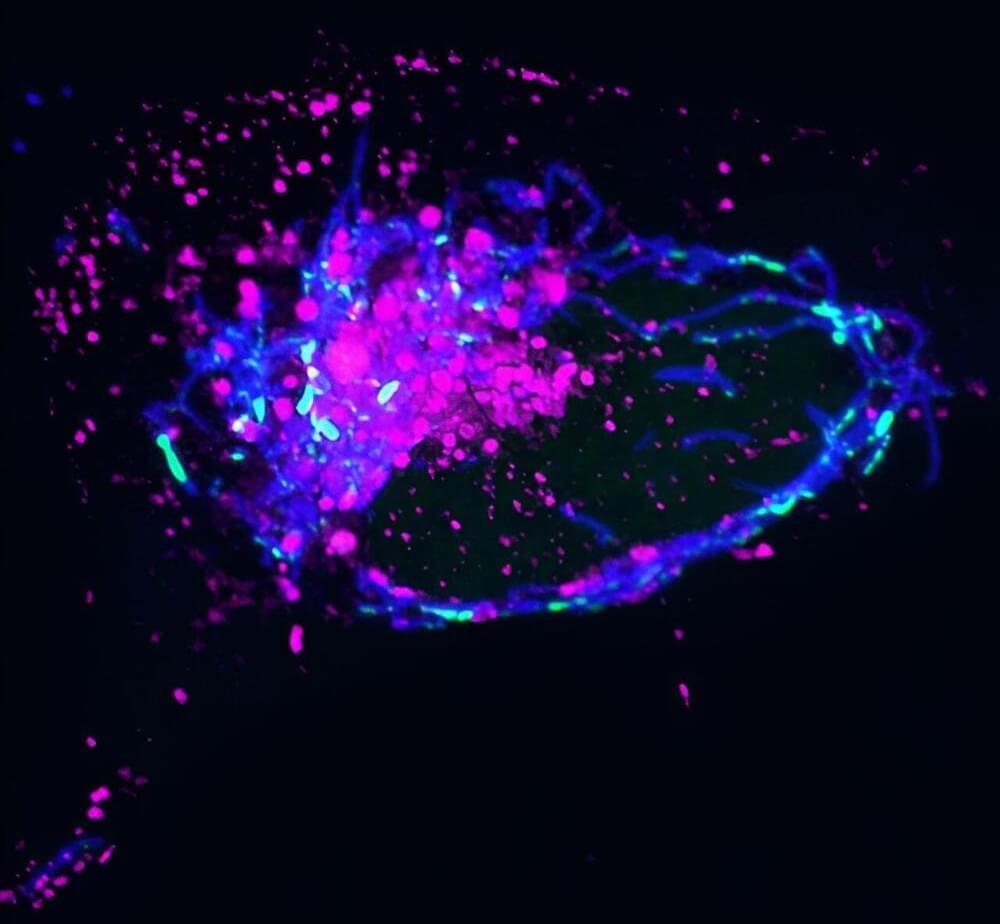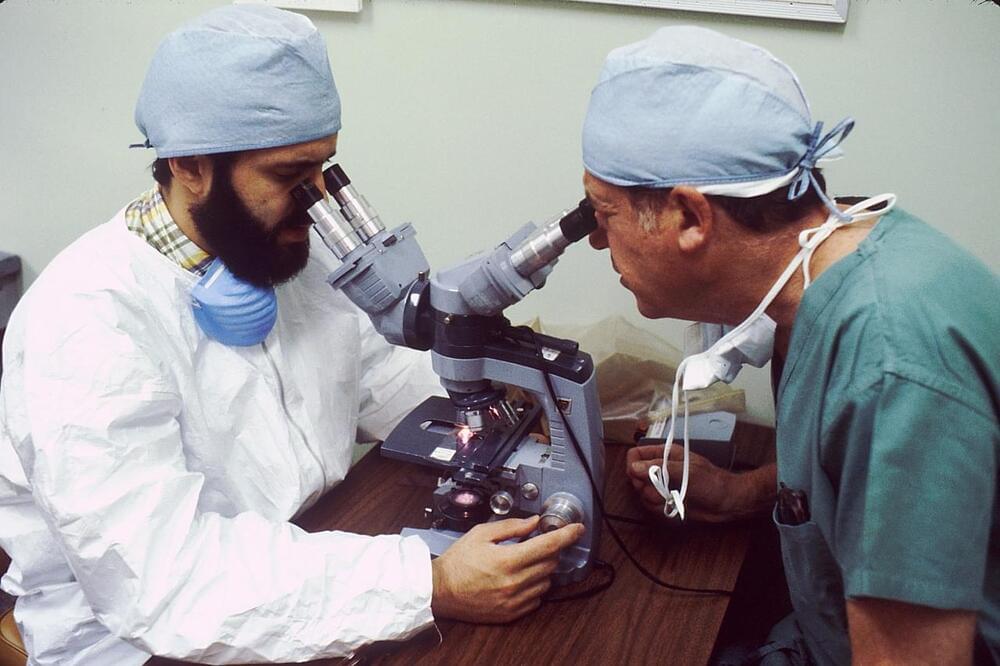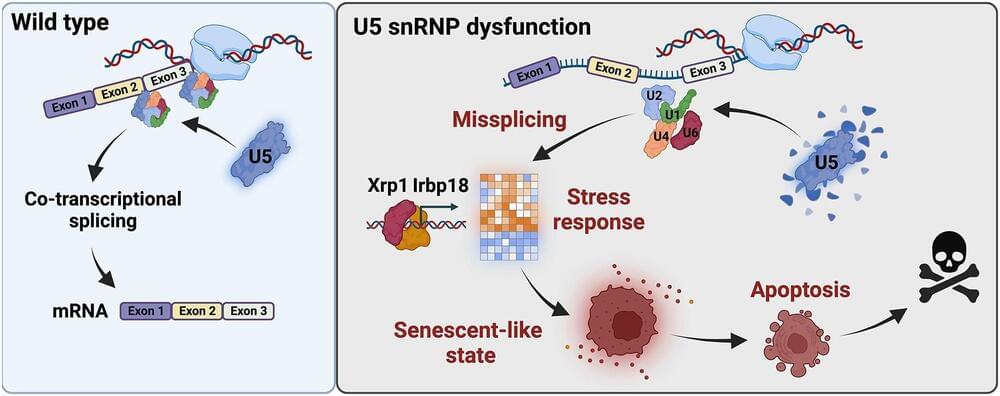A new tool that uses images of your face, tongue, and retina, could help gauge your risk of developing chronic diseases.



A new study claims that low-frequency ultrasound can reverse aspects of replicative and chemically induced senescence in vitro [1].
The age-related increase in senescent cell burden is thought to contribute to many processes of aging. Most of the attempts to deal with it involve senolytics: drugs that eliminate senescent cells.
However, it may be possible to re-educate them instead. Senomorphics are compounds that change senescent cells in a way that renders them benign, but they are much less common. The authors of this new pre-print study (it has not yet been peer-reviewed) claim to have found an even more impressive way to solve the senescent cell problem: by rejuvenating them with ultrasound.

Cells in the human body contain power-generating mitochondria, each with their own mtDNA—a unique set of genetic instructions entirely separate from the cell’s nuclear DNA that mitochondria use to create life-giving energy. When mtDNA remains where it belongs (inside of mitochondria), it sustains both mitochondrial and cellular health—but when it goes where it doesn’t belong, it can initiate an immune response that promotes inflammation.
Now, Salk scientists and collaborators at UC San Diego have discovered a novel mechanism used to remove improperly functioning mtDNA from inside to outside the mitochondria. When this happens, the mtDNA gets flagged as foreign DNA and activates a cellular pathway normally used to promote inflammation to rid the cell of pathogens, like viruses.
The findings, published in Nature Cell Biology, offer many new targets for therapeutics to disrupt the inflammatory pathway and therefore mitigate inflammation during aging and diseases, like lupus or rheumatoid arthritis.

Histopathology describes the process of examining pieces of tissue using a microscope. Light microscopic (LM) examination of tissue helps diagnose several types of cancer by allowing pathologists to view cellular changes within a biopsy sample.
The workload of pathologists has increased in recent years due to policies that encourage screening for early cancer diagnoses. In addition, longer life expectancies and scientific advances have led to an increased number of cancer survivors, further increasing the need for pathology evaluations. Thus, strategies to efficiently utilize the limited pathology resources have become essential to maintaining standards of care and the health and safety of patients.
Digital pathology (DP) has emerged as an alternative method for analyzing tissue samples by stitching together digital images from histopathology slides. Automated slide scanners can rapidly generate these high-resolution images with minimal human interaction. In addition to the speed, DP does not require a microscope, offering remote viewing possibilities. Pathologists and other healthcare professionals can easily share images.

— Anti-aging vaccine shows promise in mice — will it work in humans?
“This research is still in the early stages and may be a number of years from being available to patients,” Dr. David Pinato, a clinician scientist at Imperial College London’s Department of Surgery & Cancer and a consultant medical oncologist at Imperial College Healthcare NHS Trust, said in the statement. “But this trial is laying crucial groundwork that is moving us closer towards new therapies that are potentially less toxic and more precise.”
The first person treated in the U.K. arm of the trial wishes to remain anonymous, but said “I was pleased to be offered a chance to take part in a new trial.”
We’ve updated our list of the best longevity experts on Twitter/X and added 8 new accounts, including Dr. Morgan Levine, Dr. Brad Stanfield, and the research journal Nature Aging!
Best known for his popular longevity YouTube channel, Stanfield is a medical doctor with an interest in longevity science. Like some other folks on this list of longevity influencers, Stanfield can be a bit iconoclastic, challenging orthodoxy on things like resveratrol and fisetin.
Just like in his well-sourced videos, Stanfield’s Twitter feed is heavy with links to research papers and studies on longevity-related topics, from recent mouse studies out of the Interventions Testing Program, to threads on diet based on new trials. The downside is in his Twitter feed you don’t get to hear that sweet Kiwi accent you get from his videos.
Followers: 24,000
Founder and CEO of AI drug discovery Insilico Medicine (which has raised over $400 million under his leadership), Alex Zhavoronkov seems to be everywhere in longevity circles. From serving on the board of Peter Diamandis’s X-Prize Foundation (which recently announced its longevity X-Prize), to founding biological age testing company Deep Longevity, to somehow having the time to publish over 170 peer-reviewed studies.

I’m excited to share my latest Opinion article on AI at The Hill, a top political site/paper read by the White House and Congress:
Regardless what politicians promise, this age of AI and robots will also affect the size and growth rates of the U.S. government. Federal and state government may not immediately take up with automation and AI to the extent the private sector does, but eventually the stark rationality of lower overhead expenses—and thus lower taxes for citizens—will prevail.
This is a good thing. A smaller, nimble, more efficient government will benefit the majority of people.
Zoltan Istvan writes and speaks on transhumanism, artificial intelligence, and the future. He is the author of “The Transhumanist Wager,” and is the subject of the forthcoming biography by Dr. Ben Murnane and Changemakers Books titled, “Transhuman Citizen: Zoltan Istvan’s Hunt for Immortality.”
Join us on Patreon! https://www.patreon.com/MichaelLustgartenPhDDiscount Links: Epigenetic, Telomere Testing: https://trudiagnostic.com/?irclickid=U-s3Ii2r7x…


A study at the University of Cologne’s CECAD Cluster of Excellence in Aging Research has identified a protein complex that is activated by defects in the spliceosome, the molecular scissors that process genetic information. Future research could lead to new therapeutic approaches to treat diseases caused by faulty splicing.
The genetic material, in the form of DNA, contains the information that is crucial for the correct functioning of every human and animal cell. From this information repository, RNA, an intermediate between DNA and protein, the functional unit of the cell, is generated. During this process, the genetic information must be tailored for specific cell functions. Information that is not needed (introns) is cut out of the RNA and the important components for proteins (exons) are preserved.
A team of researchers led by Professor Dr. Mirka Uhlirova at the University of Cologne’s CECAD Cluster of Excellence in Aging Research has now discovered that if the processing of this information no longer works properly, a protein complex (C/EBP heterodimer) is activated and directs the cell towards a dormant state, known as cellular senescence. The results appear under the title “Xrp1 governs the stress response program to spliceosome dysfunction” in Nucleic Acids Research.